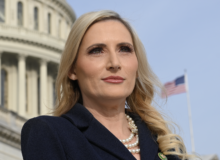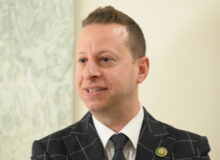I had never even met John Von Kannon, nicknamed “The Baron,” when he helped me out of a bad situation by helping me find a new job. He did it for me, sight unseen, and even unbeknownst to me, at the recommendation of mutual friends.
It was the just the sort of thing John did: He found ways to link people with each other, professionally and financially, for the mutual benefit of both — and the benefit of the conservative cause, and therefore the cause of our country.
I wrote about him, very briefly, at National Review Online on Saturday upon learning of his death. But he merits a slightly longer tribute.
John had a devilish wit. He was a bon vivant. He was a great conversationalist. And he was a very, very, very nice man.
Not only did John help The American Spectator grow into a national institution of conservative thought, and not only (more famously) did he use his fundraising prowess to help build The Heritage Foundation into the powerhouse it is today, but he also, on the side, helped numerous other organizations and initiatives find the financial support they needed to survive, grow, and thrive.
Moreover, he did it all with a rare joy, without any trace of meanness, and with a verve that sticks in the memory forever. He might show up in your town and invite you for a beer. Or he would see you, bedraggled in the cold and freezing rain, leaving a football game and give you a ride home. He might accept your invitation for lunch and make it one of those old “three martini” feasts.
And as conservative as he was, he didn’t make enemies. He wanted people to be friends despite political differences, as he was, very closely, with mutual friends of mine who worked for Democratic senators and causes.
I was told, just a few weeks before John died, that he told one of those dear mutual friends that he missed the Washington where he could look over at a Louisiana tailgate party before a Redskins-Saints game in DC, and see conservative stalwart Bob Livingston standing over a pot of gumbo in extremely friendly conversation with liberal strategist Donna Brazile. He wanted Livingston’s side always to beat Brazile’s side (in politics), of course — but he didn’t want it to be personal.
The personal was not for politics, but for friendships.
John was a hero of the conservative movement. And he was a rare and generous friend — to those to whom he was quite close and also to those, like me, with whom he spent only sporadic, but eminently memorable, times together over meals or beers.
May God comfort his family and dear friends, and may The Baron rest in God’s joy forever.






